Photojournalist’s Notebook: São Paulo’s Portelinha Favela
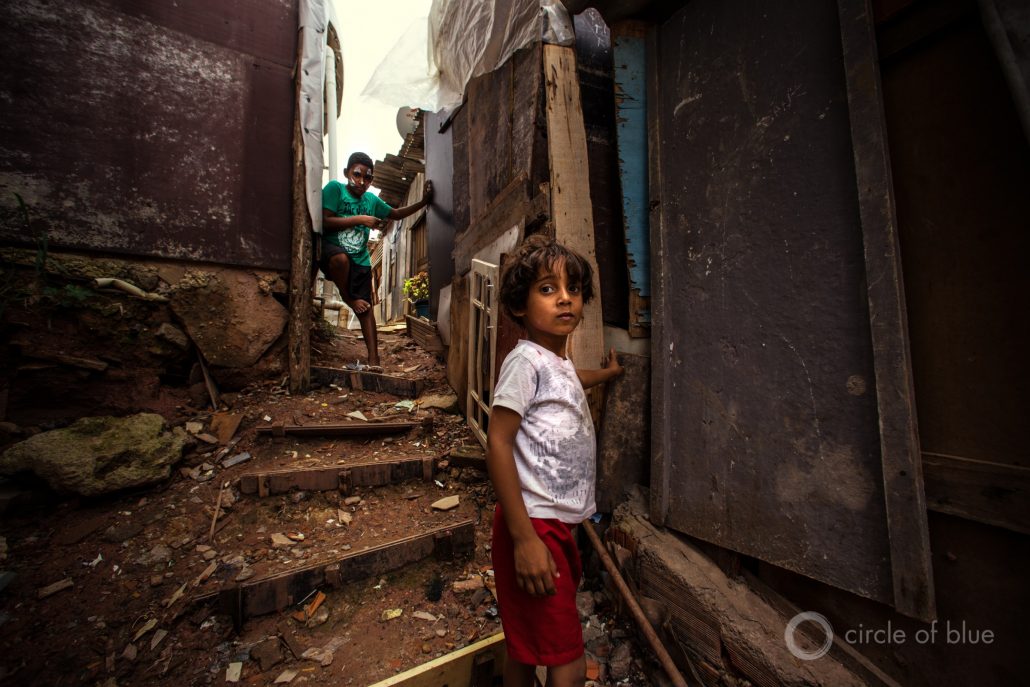
Children play in the alleys of São Paulo’s Portelinha favela, where residents have devised creative ways to channel water and sewage away from their makeshift homes. Here, an old window frame blocks rainwater from flowing into the footpath.
Photo © J. Carl Ganter / Circle of Blue
Photojournalist’s Notebook: São Paulo’s Portelinha Favela
J. Carl Ganter
São Paulo — A thunderstorm breaks the afternoon heat for a few moments in Portelinha, a favela in São Paulo. The rain pushes raw sewage and debris along narrow streets and downhill toward the river. There are no gutters and no sidewalks here, only muddy alleys that steam in the hot sun.
Most of Portelinha’s 3,000 residents live in shanties built from scavenged supplies: scraps of wood, metal, broken window frames, and even old mattresses that provide makeshift walls against the heat of day and noises of the night.
It’s one of countless ramparts on the frontlines of the world’s urbanization. Most people who carve out their lives here migrated from the far corners of the country — some from denuded Amazon forests, others from areas where crops failed during drought. The streets of the slum are named for Brazilian cities and villages that residents left behind in search of jobs and better lives in São Paulo.
“We needed to make a choice, finding a place to live that’s cheap and a way to eat,” one resident tells me. But making a living here is hard — and made even harder when there is nowhere to wash or go to the bathroom. Sewage flows downstream to the river. Following its course reveals houses on stilts and children crossing putrid canals on narrow boards.
The unsanitary conditions carry risks of illness. In the weeks before my visit, 30 Portelinha residents contracted leptospirosis, a bacterial disease spread through sewage that can lead to organ damage and, if left untreated, death.
Those living in Portelinha are among the roughly 40 percent of the world’s population that are affected each day by water scarcity and pollution. According to a recent UN-World Bank study, some 700 million people could be migrating — many to cities — in search of water by 2030.
“Our first priority is to find a roof to protect us from the environment,” the resident says. “Sanitation is the second step, but there is no infrastructure for sanitation.”
As the evening sun settles over the makeshift community, children push bicycles up the hill while their parents bring in the laundry and shore up their doors for the night.
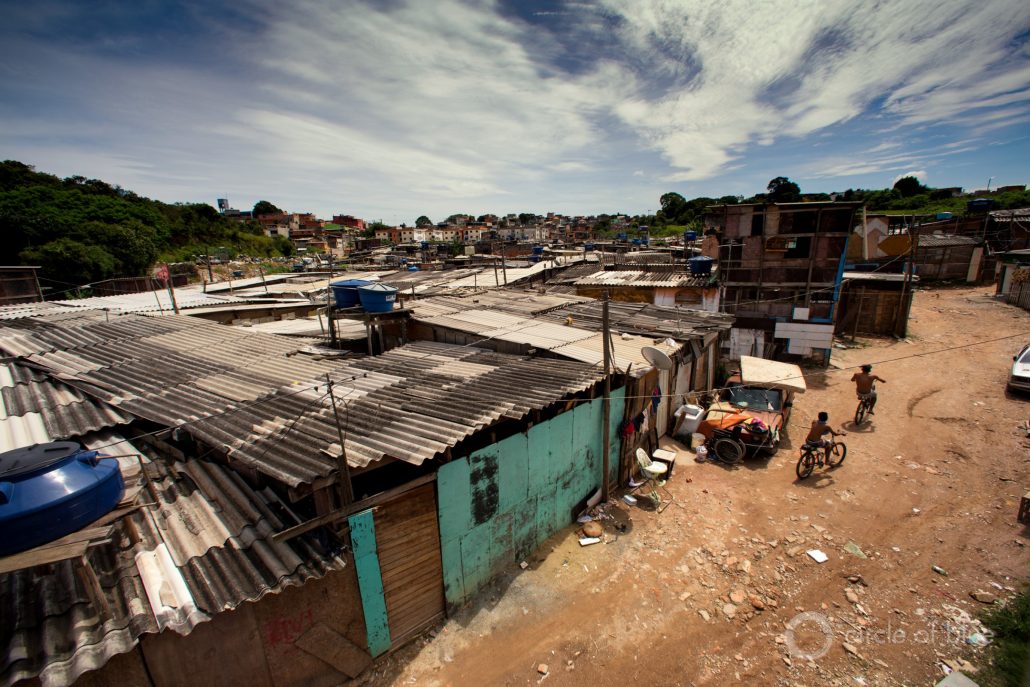
Shanties in Portelinha, a favela in São Paulo, Brazil.
Photo © J. Carl Ganter / Circle of Blue
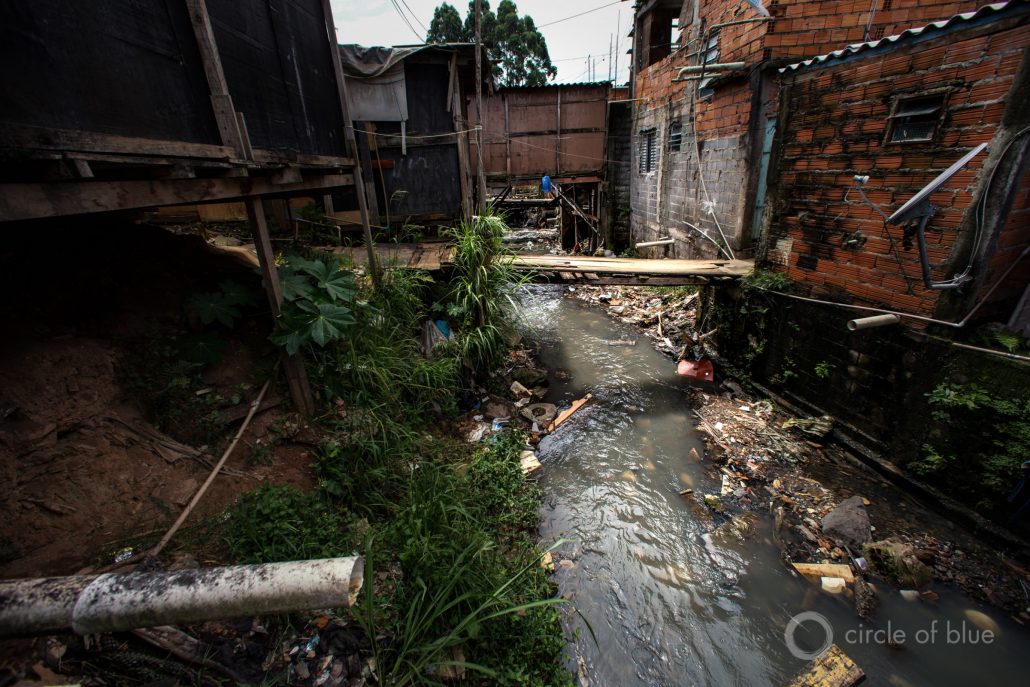
In Portelinha, sanitation is limited to makeshift pipes that channel sewage into nearby canals and streams.
Photo © J. Carl Ganter / Circle of Blue
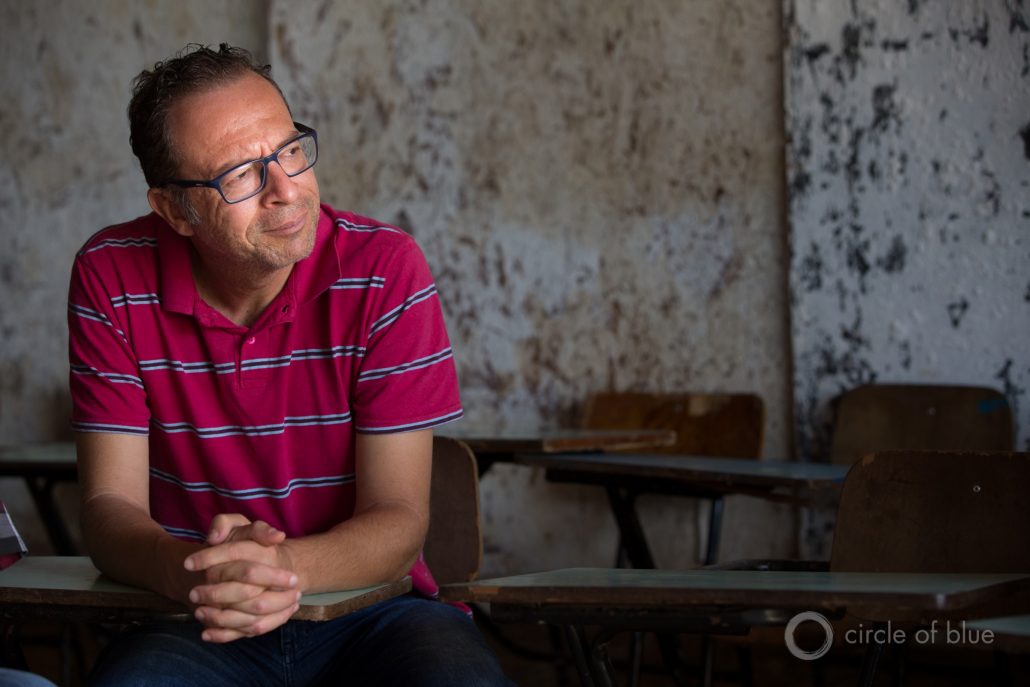
Many residents moved from rural Brazil to Portelinha after drought devastated their farms.
Photo © J. Carl Ganter / Circle of Blue
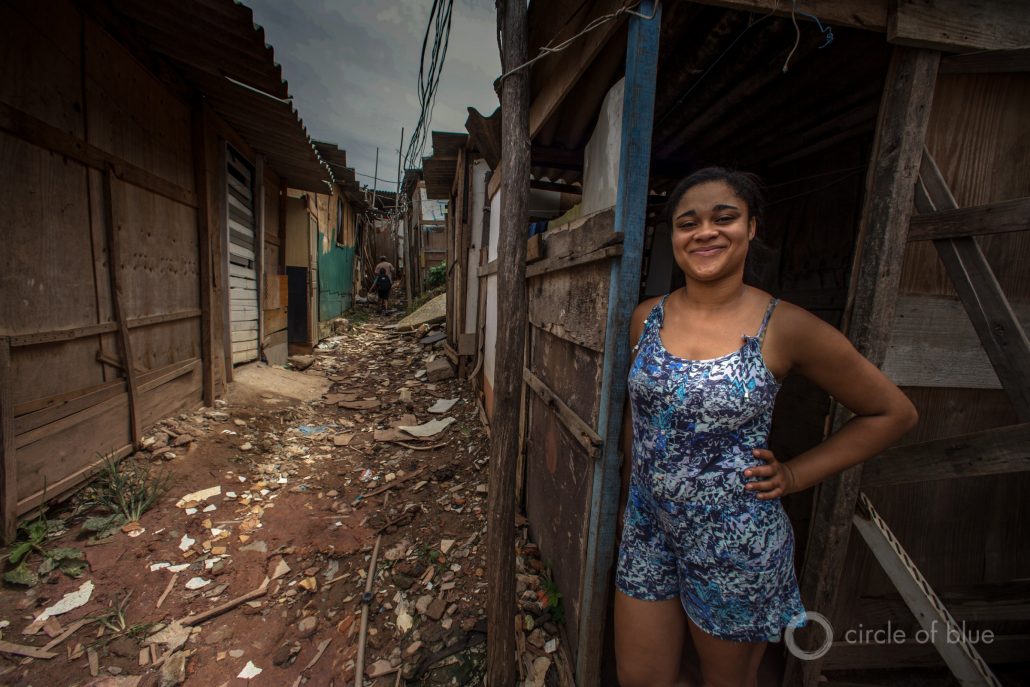
Favelas in São Paulo are often the first stop for migrants who have moved to the city seeking jobs and permanent housing.
Photo © J. Carl Ganter / Circle of Blue
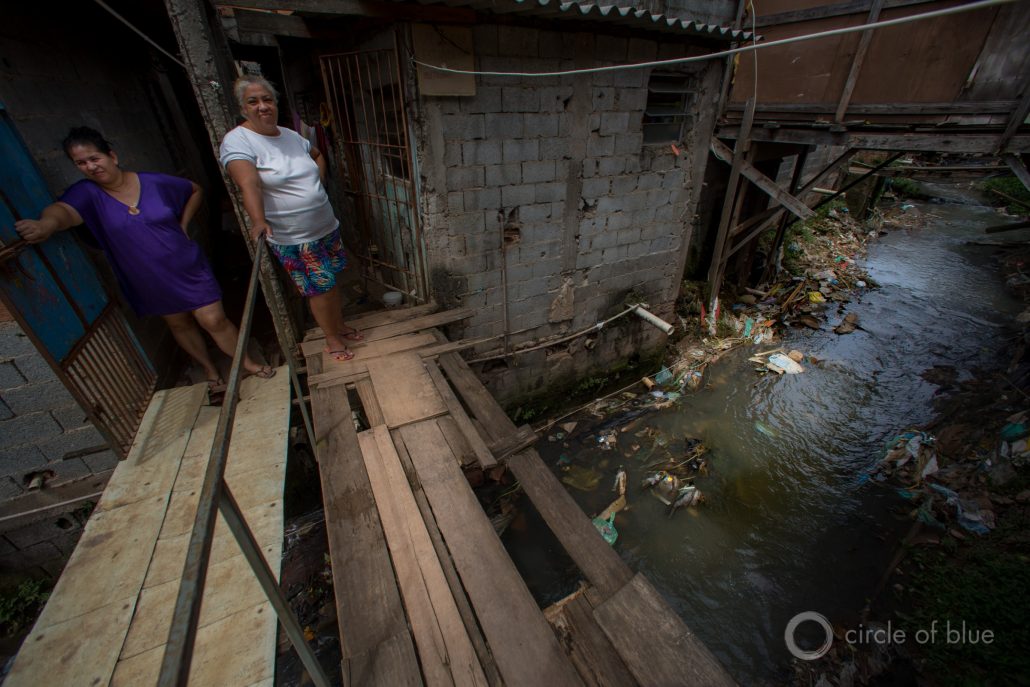
Two women stand on the edge of a crudely constructed bridge that spans a sewage canal.
Photo © J. Carl Ganter / Circle of Blue
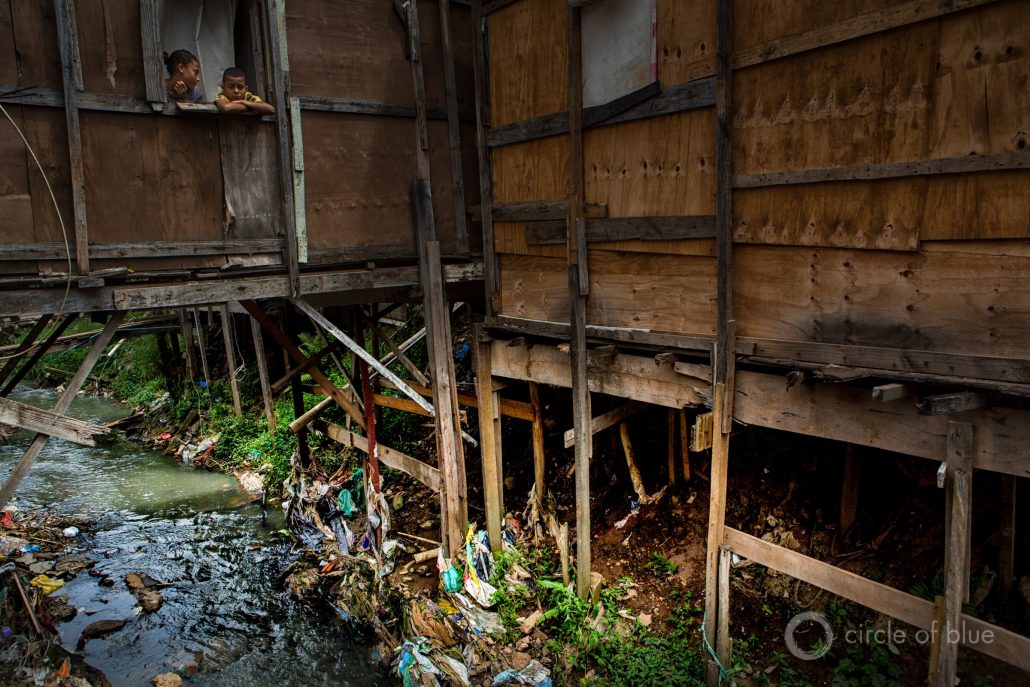
Children overlook a sewage canal in Portelinha. When residents flush their toilets, the wastewater empties directly into these waterways.
Photo © J. Carl Ganter / Circle of Blue
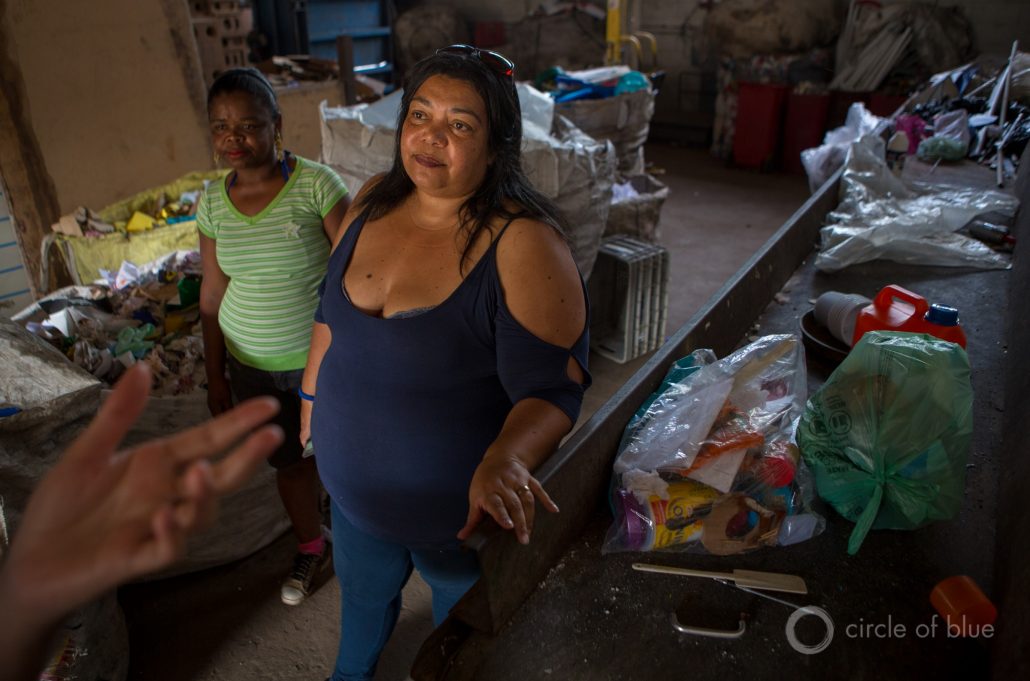
Angela de Cara Limpa runs a community recycling program in the Osasco neighborhood of São Paulo. She also spearheads an urban agriculture project, which allows residents of Portelinha to grow bananas, avocados, lemons, and corn.
Photo © J. Carl Ganter / Circle of Blue
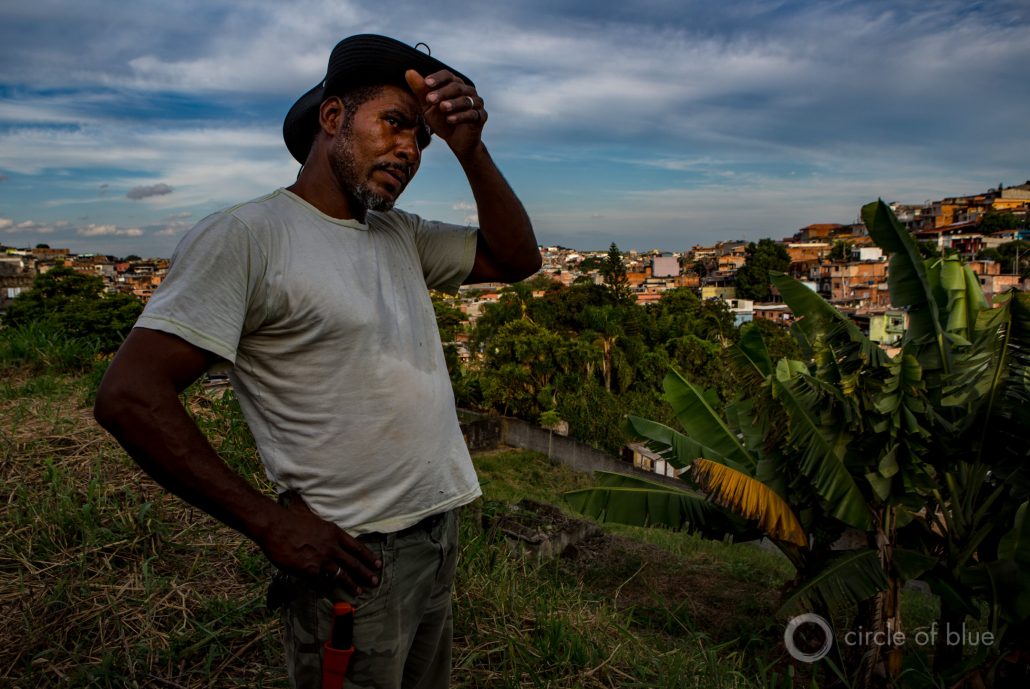
Aneneias, an urban farmer at the Instituto AuÁ in São Paulo.
Photo © J. Carl Ganter / Circle of Blue
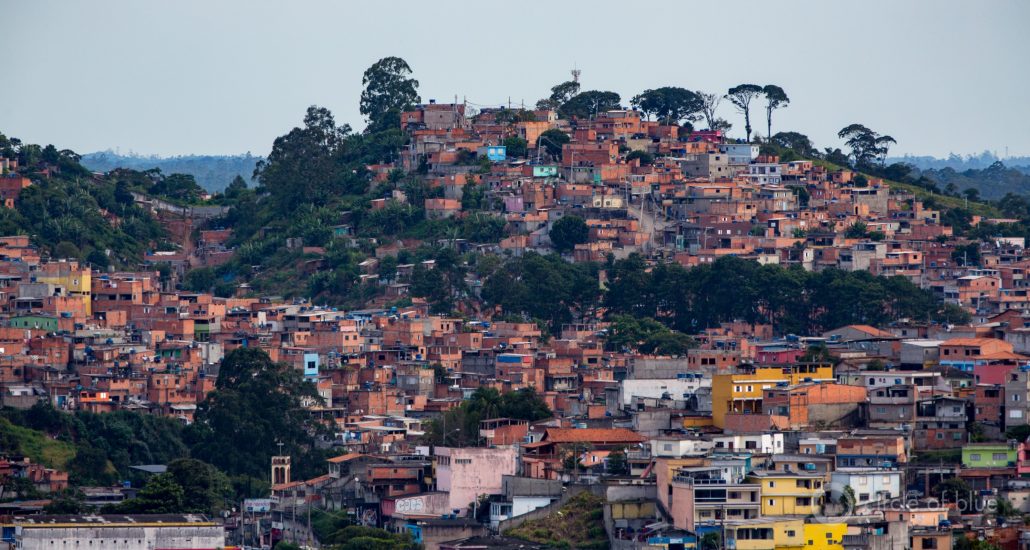
The lack of adequate water and sanitation is a perennial problem across São Paulo and other rapidly growing urban centers.
Photo © J. Carl Ganter / Circle of Blue
J. Carl Ganter is co-founder and managing director of Circle of Blue. He is a journalist and photojournalist, recipient of the Rockefeller Foundation Centennial Innovation Award, and an Explorers Club Fellow.

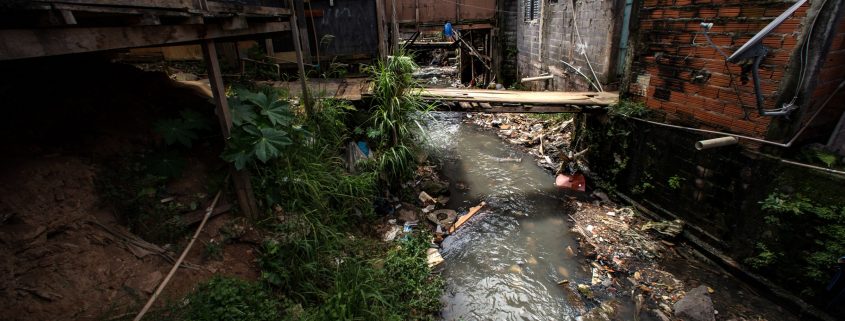
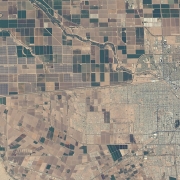
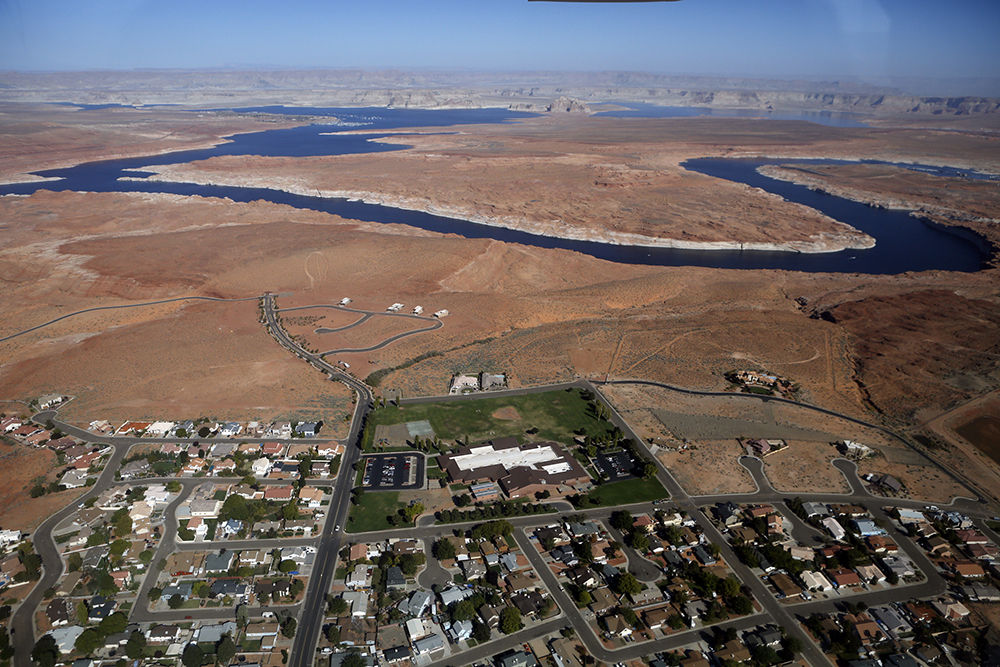


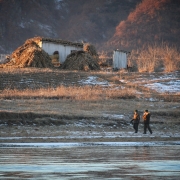




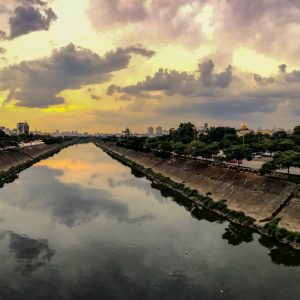
Leave a Reply
Want to join the discussion?Feel free to contribute!